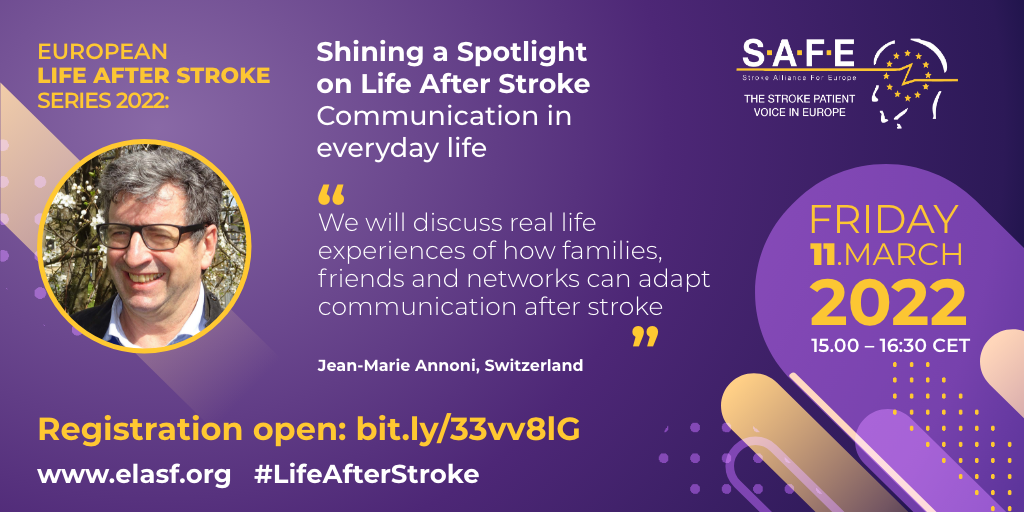
Mar 1, 2022
Professor Jean-Marie Annoni, from Switzerland, is a confirmed speaker at our afternoon event on 11 March.
The session will focus on overcoming communication barriers faced by people with stroke.
Stroke survivors will share their experiences and show that – even without aphasia – communication failures are common. This can result in confusion and distress.
Listen to Professor Jean-Marie Annoni say why you should join him at the 2nd Life After Stroke plenary on 11 March, 15.00 -16.30 CET.
Sign up for your FREE place.
This event has been accredited by the European Accreditation Council for Continuing Medical Education (EACCME®)
For more information about the programme visit bit.ly/3KmsUWu
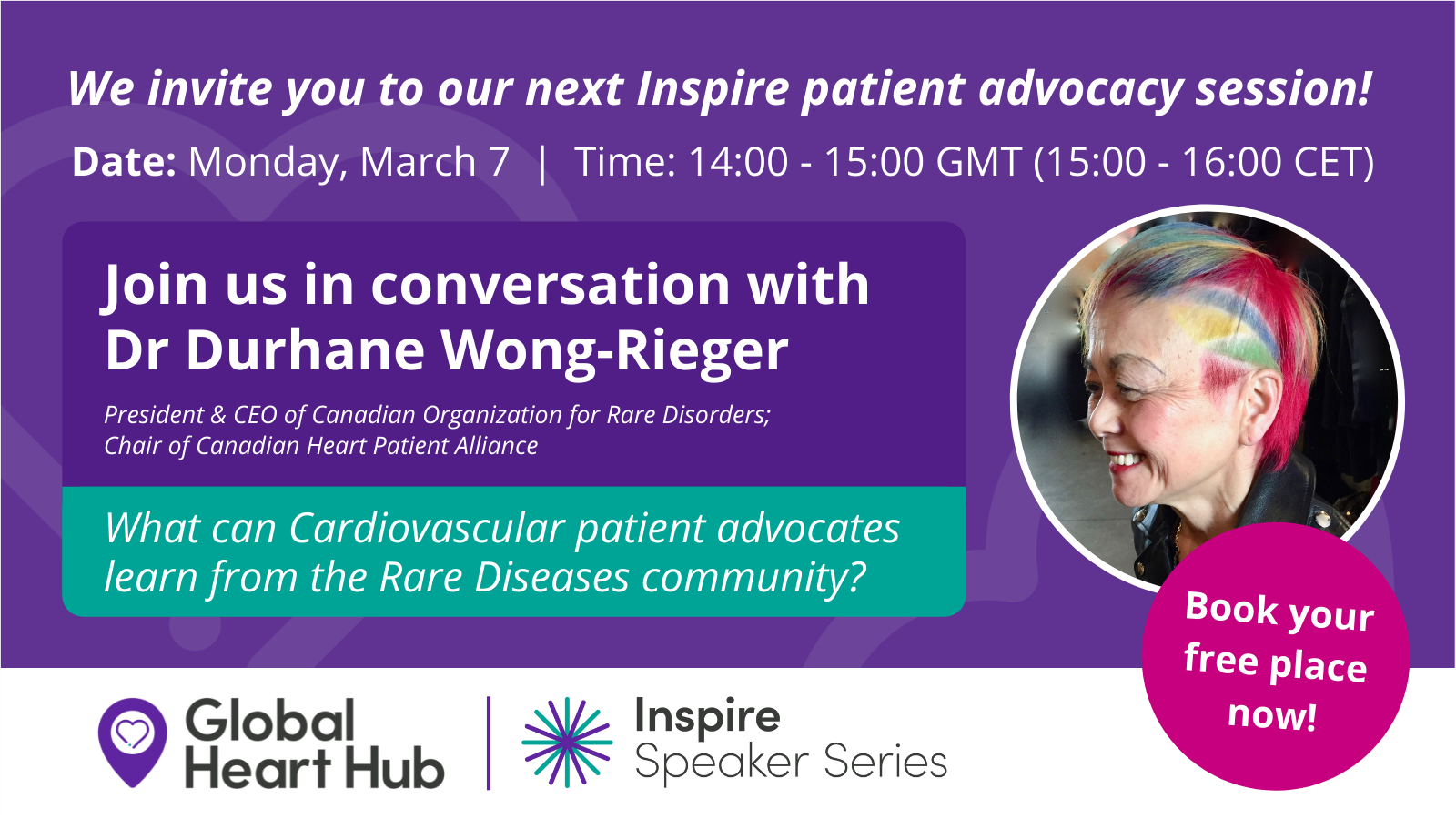
Mar 1, 2022
Dr Durhane Wong-Rieger, Chair of the Canadian Heart Patient Alliance will share their thoughts on how to activate and engage patient groups in to collective action.
Register now for your free place on Monday 7 March at 15.00 – 16.00 CET
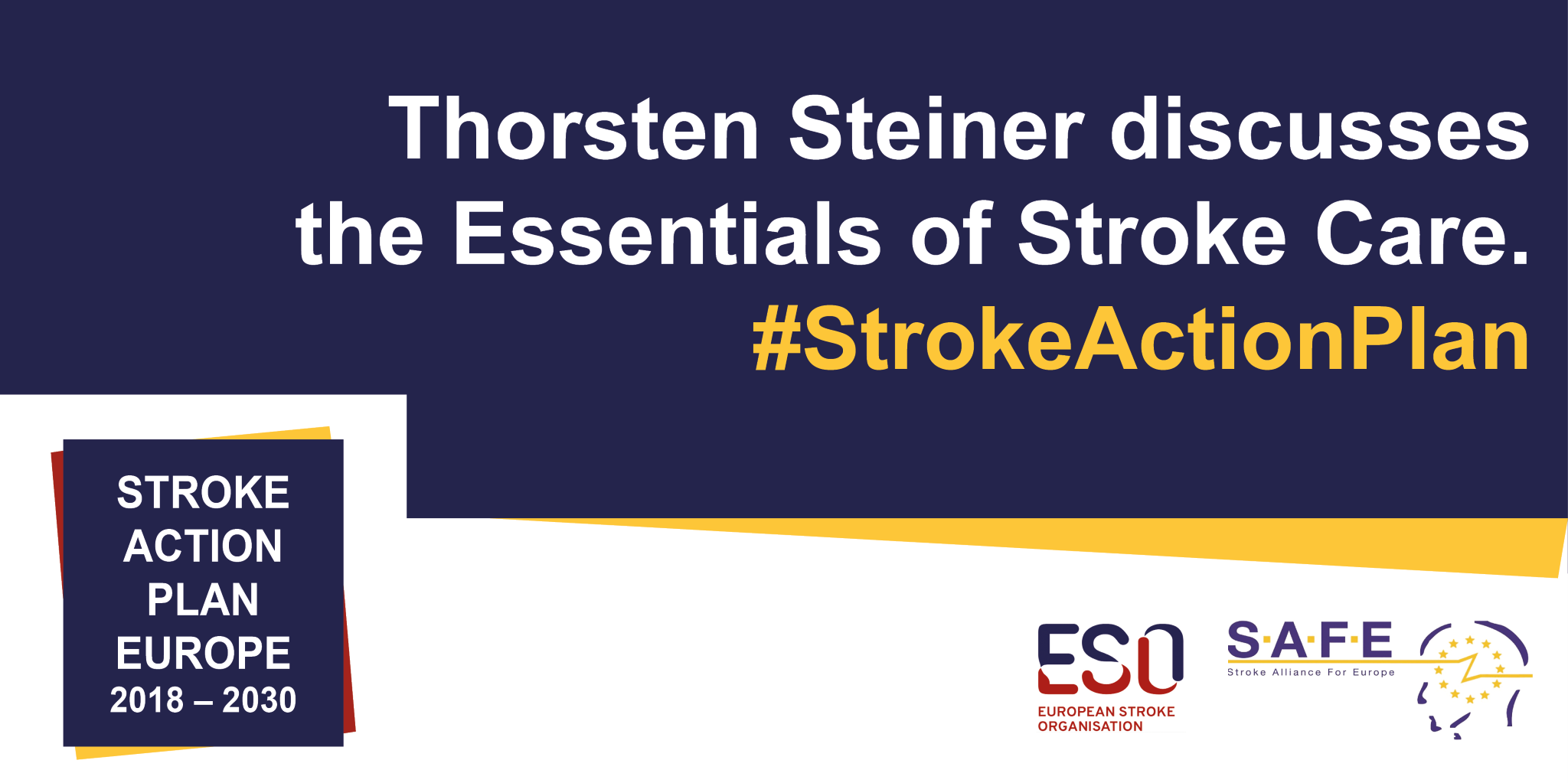
Mar 1, 2022
The Essentials of Stroke Care was developed to support the implementation of the Stroke Action Plan for Europe.
It is a practical tool to help help healthcare professionals improve stroke care, containing an overview of evidence-based interventions for the whole stroke care pathway.
Find out what motivated Professor Thorsten Steiner to create Essentials of Stroke Care in this short video
Download Essentials of Stroke Care or find more resources at https://actionplan.eso-stroke.org/
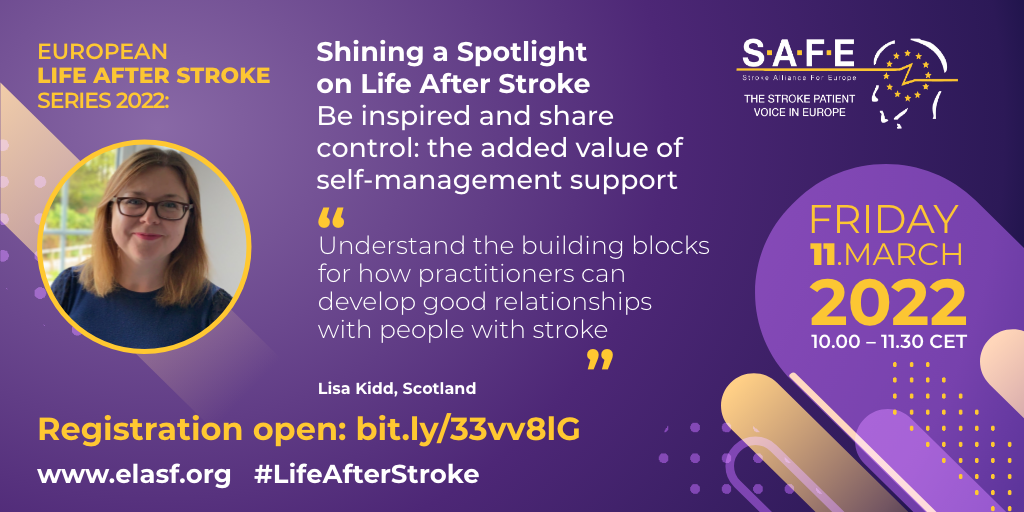
Feb 22, 2022
Stroke survivor Scott Ballard-Ridley will be starting the morning session at our Life After Stroke event on 11 March 2022, 10.00 – 11.30 CET.
He will be joined by Professor Fiona Jones (England), Dr Lisa Kidd (Scotland), Professor Hanne Palleson and Mette Brandi (Denmark). They will be sharing their research and insights on self-management.
You will understand how genuine and authentic relationships help people living with stroke to become confident self-managers and the building blocks for how practitioners can develop good relationships with people with stroke. Dr Lisa Kidd
Listen to Lisa Kidd talk about the session youtu.be/eXOBGU05j3M
View the full programme and register for a FREE place.
We are currently seeking accreditation for this event from the European Accreditation Council for Continuing Medical Education.
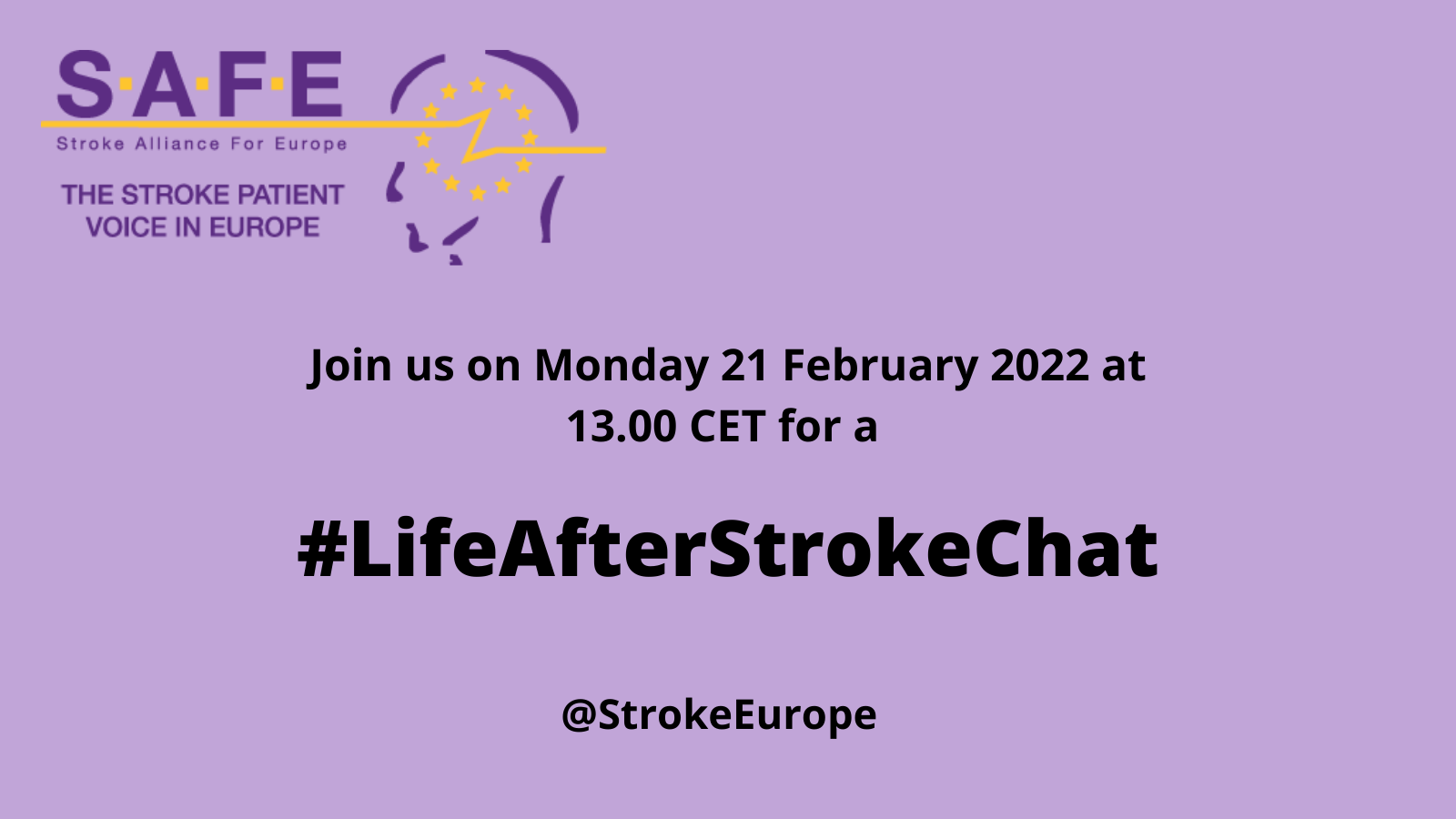
Feb 15, 2022
Join us and our special guests, Professor Avril Drummond, Marina Charalambous, Dr Carina Persson, stroke survivor, Diana Wong-Ramos and Lesley Scobbie for our first Tweetchat on Life After Stroke.
Join in the conversation by searching the hashtag #LifeAfterStrokeChat and discuss important issues around life after stroke.
Find out more about our Life After Stroke events bit.ly/3KmsUWu

Feb 15, 2022
Professor Jean-Marie Annoni is one of four speakers at our afternoon plenary on 11 March at 15.00 CET.
The session will focus on overcoming communication barriers faces by people with stroke.
Stroke survivors will share their experiences. They will show that even without aphasia, communication failures are common and can result in confusion and distress.
Listen to Professor Jean-Marie Annoni talk about communications after stroke in everyday life and why you should join him at the 2nd Life After Stroke plenary on 11 March, 15.00 -16.30 CET.
Sign up here bit.ly/33vv8lG
For more information about the programme visit bit.ly/3KmsUWu









